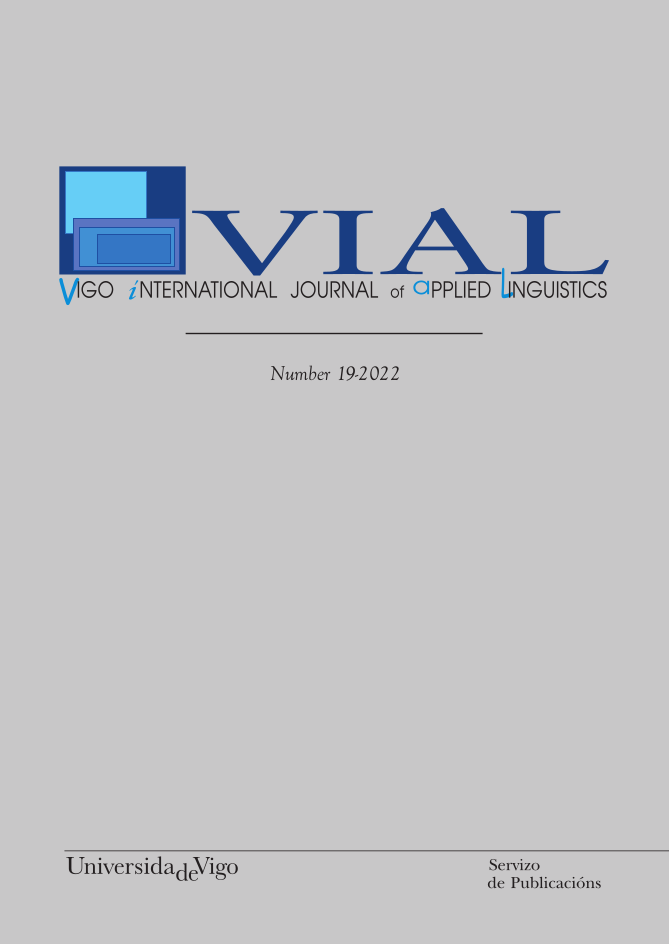Assessing the impact of the Lexical Approach on EFL perceived oral proficiency: What is the role of formulaic sequences?
DOI:
https://doi.org/10.35869/vial.v0i19.3759Keywords:
lexical approach, collocations, formulaic sequences, oral proficiency, EFL learningAbstract
The Lexical Approach (LA) is a pedagogical method that emphasizes authentic language and learner exposure to co-occurring lexical units. The approach has garnered renewed interest over the last years due to its focus on the frequency of multi-word form-meaning distributions, which is in line with usage-based (UB) approaches to language acquisition. Thus, the present study sought to assess the impact of the LA on perceived oral proficiency and formulaic sequence use. To this end, 38 English as a Foreign Language adult learners at a language institute were divided into two groups, one of which was exposed to 38 teaching hours of instruction based on LA principles. Both groups were asked to perform two oral tasks that were evaluated by three judges in terms of oral proficiency and number of formulaic sequences used. Results revealed that the LA group outperformed the control group in perceived overall oral proficiency scores and in the number of formulaic sequences used, and that there were positive moderate correlations between these measures. Pedagogical implications emphasizing the importance of exposing learners to lexical chunks by means of authentic materials are discussed, as well as their relevance in EFL contexts that focus on the short-term achievement of grammatical accuracy.
Downloads
Downloads
Published
Issue
Section
License
Revistas_UVigo es el portal de publicación en acceso abierto de las revistas de la Universidade de Vigo. La puesta a disposición y comunicación pública de las obras en el portal se efectúa bajo licencias Creative Commons (CC).
Para cuestiones de responsabilidades, propiedad intelectual y protección de datos consulte el aviso legal de la Universidade de Vigo.



